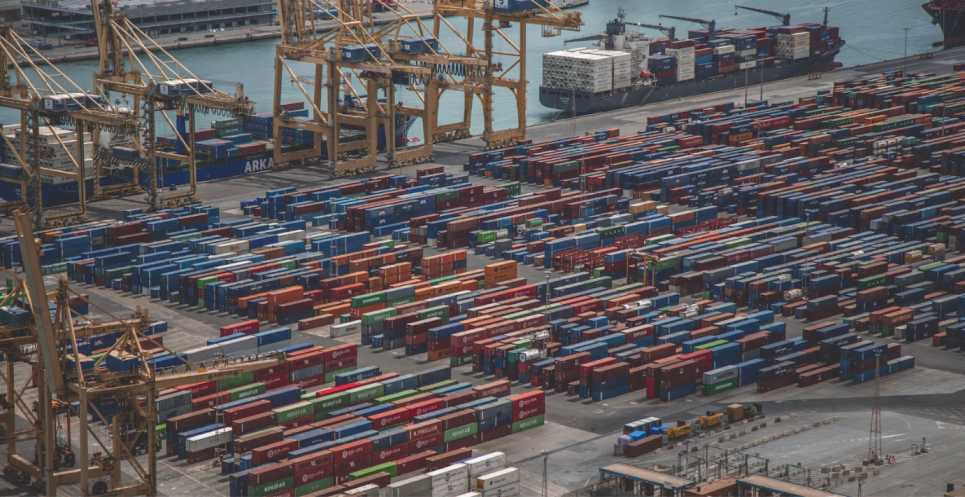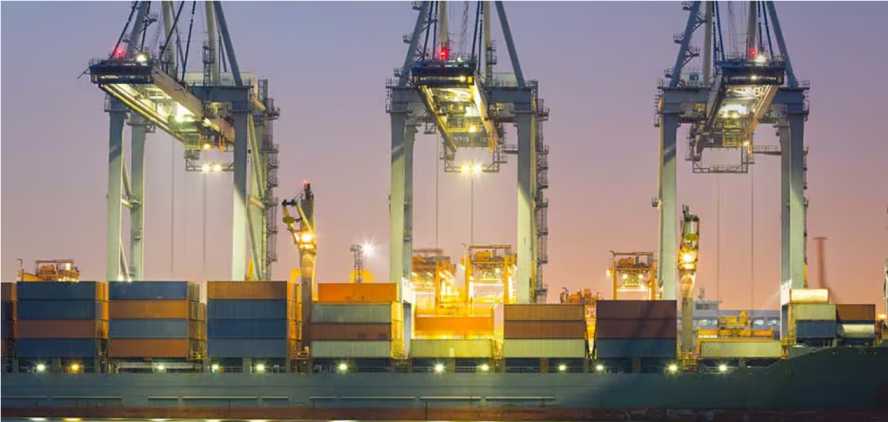Port Automation: Transforming Cargo Handling and Storage
The efficient handling of cargo at port terminals is extremely crucial in the bustling world of international trade. To increase operational efficiency, traditional methods will no longer suffice. In these times, turning to automation will be the key to improving cargo handling processes.
More and more industries are learning how to automate their business operations. As a result, they’ve experienced significant cost reductions and improved productivity – sometimes with even reduced manpower.
With the integration of technologies such as robotics, artificial intelligence (AI), and the Internet of Things (IoT), the port industry is bound to enter a new age – an age that takes a more streamlined approach to cargo handling and operations.
In this piece, immerse yourself in the latest developments in port automation. We’ll answer your biggest questions – from the basic concepts to the advanced technologies shaping the industry’s future.
Understanding Port Automation
To better understand the importance of port automation, we have to get a good grasp of the current and past states of the industry. Traditionally, port and cargo handling relied on manual labor and other taxing processes, which wasn’t ideal for such an important industry.
However, this all changed when we started incorporating various technologies. With the introduction of automation, cranes and transport systems reduced their loading times – increasing the throughput capacity of terminals. These developments have allowed greater flexibility while preventing any delays.
Couple this with the integration of data analytics, port operators have gained meaningful insights that help improve operational efficiency. By leveraging the power of these technologies, port operators can proactively identify issues to prevent them from ballooning into bigger problems, such as costly disruptions.
With the advancement of port automation, it paved the way for reduced labor requirements and improved safety protocols. The amount of workplace accidents is thereby reduced, keeping a safe working environment for port employees.
The Role of Robotics in Cargo Handling
Introducing robotics to the port industry has been pivotal, reducing the use of traditional practices that often lacked precision and efficiency. Robotics has hastened the cargo handling process, while also maintaining the much-needed accuracy in port operations.
The seamless coordination between robotic systems and cargo transport mechanisms may have streamlined the loading and unloading process, but it also optimized storage management. The better use of space is another piece that completes the efficiency puzzle.
A significant advantage of this is its lower contribution to the industry’s environmental footprint, paving the way for environmentally sustainable terminal operators. By minimizing resource wastage and reducing the need for expanding port infrastructure, terminal operators can foster a greener approach to cargo handling. Hence, the integration of robotics also boosts the productivity of port terminals while ensuring good sustainability practices.
The Role of AI in Cargo Handling
For quite some time now, artificial intelligence has been the talk of the town – and rightfully so, with its ability to completely transform industries. The port industry is no exception, and could definitely use some AI integration.
But, how exactly does AI complement the port industry? Artificial intelligence is known to process and analyze data at non-human speeds, so it’s expected that its integration can greatly benefit port operations.
One of the most valuable applications is in the field of predictive analytics. The ability to make accurate and data-driven predictions on the flow of cargo is invaluable to the port industry. The result of this is, unsurprisingly, increased resource optimization and improved operational efficiency.
Security issues are quite rampant in ports and fortunately, AI can lend its helping hand. Whether it’s video surveillance systems or databases that require a higher level of security, its advanced algorithms and real-time video monitoring capabilities reduce the risk of security breaches and unauthorized access to restricted cargo areas.
The Role of IoT in Cargo Handling
Another innovation that significantly influences cargo handling is IoT. The integration of IoT technologies, just like AI, allows you to gain real-time monitoring capabilities. But this time, we’ll focus on the different stages of cargo handling.
IoT plays a huge role in asset tracking. With the integration of IoT sensors, port authorities can monitor updates in real time, ensuring cargo safety throughout the process. In case there are discrepancies or irregularities, these can be acted upon immediately.
IoT-enabled predictive maintenance is one of its other applications, ensuring the smooth and continuous operation of cargo handling equipment. By collecting data on equipment performance, IoT can predict potential issues before they sprout, allowing for timely maintenance and repair.
On top of these, the integration of IoT automates inventory management and supply chain logistics. These systems ensure that inventory records are accurate and up-to-date, therefore minimizing errors in cargo operations.
The Future Implications of Automation
Now, what does this spell for the future? Automation will revolutionize cargo handling and it’s showing no signs of stopping, especially with the increased efficiency and productivity it brings. At the same time, it’s expected to create new employment opportunities, rather than reduce them, which emphasizes the importance of human expertise alongside technological advancements.
Final Thoughts
There we have it – the three main technologies that will, and are, shaping the future of cargo handling. With the integration of robotics, AI, and IoT, the port industry is poised for continued growth. But as we continue to embrace these advancements, it’s important that we maintain a balance between technological innovations and skilled expertise because only then can we unleash their full power.


2 thoughts on “Port Automation: Transforming Cargo Handling and Storage”